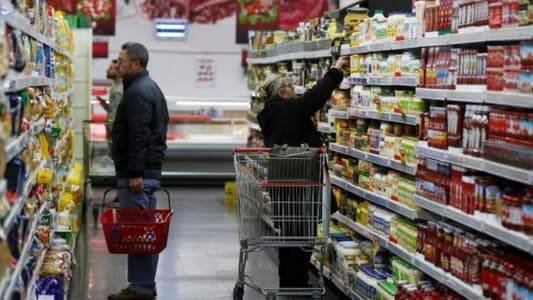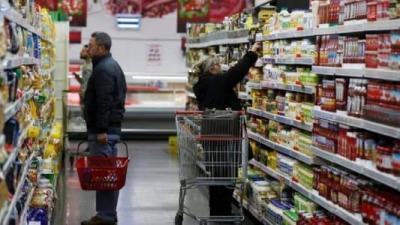Calculating customs duties based on 15,000 Lebanese pounds per dollar will not sufficiently cover the cost of doubling salaries and wages by the equivalent of two additional salaries above the basic salary. Regardless of the correctness of allocating specific revenues to cover certain expenses, according to the principle of sharing in the budget, the maximum expected revenue from the customs dollar, according to relevant sources, does not exceed 1.2 trillion Lebanese pounds monthly, while the cost of salaries and wages reaches 3.3 trillion pounds.
In terms of substance, the most dangerous aspect of this "customs dollar" is the normalization by legislators of obscurity to pass laws, without their full awareness of the economic repercussions. Increases in taxes rely on studies of the economic reality and social justice, and "this is what we have been lacking for at least 30 years, and it was not taken into account when the series of salaries and wages was approved in 2017, whose results were one of the many reasons for the collapse," says Karim Daher, a lecturer in tax law and public finance.
On the other hand, the customs dollar has been passed in a misleading way, using three articles in the 2022 budget to change the exchange rate. These articles are:
- Article 19, which allows the state to open a foreign currency account to collect revenues, contrary to the rule that does not permit the state to collect any income in currencies other than the Lebanese pound.
- Article 87, which specified the amounts charged in foreign currency.
- Article 25, which permitted the Minister of Finance with the Central Bank Governor to determine exchange rates.
It is noted that there is no mention in any of the budget articles of calculating the prices of imported goods subject to customs duties based on 15,000 Lebanese pounds. In contrast, the government relied on "Law 93/2018, which authorized the government to legislate directly or indirectly in the customs field," according to lawyer Karim Daher. To complete the "film," the decision to adopt the customs dollar is supposed to come from the Minister of Finance, not from the Higher Customs Council, to avoid disparity between the recent tax increases that have been applied on the Sayrafa exchange rate and the calculation of the customs dollar based on 15,000 pounds.
Contrary to the logic of bribing the Lebanese from their own pockets, which the authorities practice, claiming that there are more than 600 essential goods exempt from fees, the increase in customs duties by tenfold will affect the majority of goods. If bread-making materials are exempt, nylon bags and the ties used are subject to the new fee. Cars used to transport goods, their spare parts, and fuels are included in the new tax, along with materials involved in manufacturing, packaging, and distribution, which will be subject to the tax, and will lead to a significant increase in prices due to straying from regulations and lack of oversight.
Moreover, "the Ministry of Economy has not published invoices for goods imported by merchants, nor have they raided warehouses storing food items, electrical tools, car spare parts, tires, etc., which were brought in large quantities before the implementation of the new customs dollar," according to Castro Abdullah, president of the National Union of Labor Unions in Lebanon. The period between the announcement of the customs dollar and its implementation has been exploited to sell all old stock due to the often unjustified rush of citizens to buy what they need and what they do not need, in anticipation of rising prices.
### Alternatives Available
According to Abdullah, there are many alternatives to the customs dollar to enhance treasury revenues, including:
- Collecting from the use of coastal and river properties, which could generate more revenue than calculating customs duties on imported goods at a rate of 15,000 pounds per dollar.
- Adopting direct and progressive taxes instead of imposing fees and taxes uniformly on all citizens without distinction based on income.
In Abdullah's view, "this authority is not looking for solutions but rather aims to deepen the crisis to maintain the interests of its components. Alternative solutions are available and present, but they prefer to impose taxes on citizens and continue their corruption and clientelist practices based on division and the allocation of shares and gains."
### Most Affected Goods
The goods most affected by calculating the customs dollar based on 15,000 pounds will be high-priced items, which impose a high customs duty of 20 to 30 percent, such as electrical appliances and air conditioners. Their selling price to the end consumer will increase by more than 20 percent from their original price. For example, an item worth 300 dollars subject to a 25 percent duty will incur an additional 1,125,000 Lebanese pounds in customs duties instead of 112,000 pounds previously, and the purchaser will pay an 11 percent VAT at the market exchange rate based on decision 893 issued in 2020, equating to 1,500,000 pounds instead of 62,000 pounds. This raises the final price to around 14,625,000 pounds instead of around 12,000,000 pounds.
### Cell Phones to Increase by 10 - 15%
The price increase of cell phones will range between 10 and 15 percent compared to previous market prices. This is because the customs duty on phones is 5 percent. However, traders must also pay VAT upon import based on 15,000 pounds per dollar instead of 1,500 pounds, while the final consumer pays VAT at sale based on the market exchange rate per decision 893 from the Ministry of Finance in 2020. However, very few traders comply with calculating the VAT based on the market rate, and they evade it since sales transactions occur between companies rather than to individual consumers, allowing them to continue collecting it from the state based on 1,500 pounds instead of 40,000 pounds as stipulated in the financial decision.
Despite the harshness of the customs dollar on a population where most of its members live in poverty, experts consider it "a simple detail compared to the decisions that mandated calculating other taxes based on the Sayrafa rate." According to Karim Daher, the Finance Ministry's decisions to calculate taxes retroactively based on the Sayrafa rate undermine equality among taxpayers guaranteed by Article Seven of the Constitution.
### Car Fees
Imported used cars valued over 20 million pounds (about 13,400 dollars at the 1,500-pound exchange rate) are subject to a customs duty of 5 percent, an internal consumption fee of 45 percent, and an 11 percent VAT. Hence, the calculation of the customs dollar based on 15,000 pounds raises the car's value to 200 million pounds, leading to the following fees: 10 million pounds in customs duties, followed by 94 million pounds in internal consumption fees calculated at the new rate, plus the 11 percent VAT.
For cars worth less than 20 million pounds (around 13,300 dollars at the 1,500-pound exchange rate), the customs duty is 500,000 pounds, while the internal consumption fee amounts to 4,500,000 pounds, with VAT being added after calculating the two fees at 11 percent. It's still unclear how car importers will calculate the fees assessed in Lebanese pounds, although their sources suggest increasing the customs duty to 5 million pounds and the internal consumption fee to 45 million pounds, plus the 11 percent VAT.




